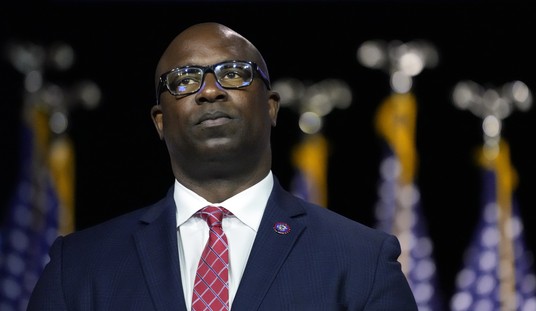The unambiguous loser of the Iran vs Israel war is Joe Biden's Middle East policy. Any plausible continuation requires a completely different set of people, policies and approach. The former road now seems fundamentally flawed. It's not a question of waiting for things to blow over and keep going because the errors were more than tactical. The whole world view on which it was premised has gone out of date.
Are we entering a period of institutional, social and technological discontinuity where the old progressive saws no longer apply? “This may be the most dangerous time the world has seen in decades,” JPMorgan CEO Jamie Dimon said in a statement that accompanied the bank’s recent earnings release.
The United States is facing its fourth major inflection point in history since the early 20th century, and if world leaders get it wrong, the results could be similar to what occurred during the 1930s and ultimately led to World War II. That’s according to Frederick Kempe, CEO of foreign policy think tank Atlantic Council, and it is a fear he says more CEOs of major corporations are focused on today.
Every political scientist knows the theory that the US goes through a crisis roughly every 80 years or at least periodically. The year 1776 plus "fourscore and seven years" takes us to the civil war. Eighteen sixty plus 80 takes us to WW2. WW2 plus 80 bring us to today, the current crisis. There is nothing magic about this number; nor does it apply only to America. It's just that for some reason that is where its effects are most pronounced. It's three generations, the span of living memory. Institutions, culture and technological assumptions go out of scope.
If we are living through an inflection point, the likelihood the world is about to enter a discontinuity is high and we know relatively nothing about how it will turn out because our expectations are no longer a reliable guide. It is a maximum entropy moment until we "find" which way it is going to break, toward what attractor, what things now work. A word about maximum entropy. It describes being in a new situation when you know nothing else about a situation than the possible outcomes, defined as 1/N for all possible N.
If faced with a new die, the odds of any outcome without experience is 1/6 because the cube has 6 faces. As you get experience the actual bias of the die becomes evident. One die face may be loaded a little. The Bayesian gives you a progressively better estimate of the true distribution; you get comfortable, in control. You start to imagine you can completely predict things. But then one day God gives you a new die -- and you are back to maximum entropy. A final note. You can never actually enumerate all N, because there are some possible outcomes of which we are ignorant. That is sometimes called the "unknown unknown". We are never completely in control. But some people think so. Klaus Schwab or the Davos crowd come to mind. People who grew old thinking they understood it all are astonished to find nothing the same as it was.
The truth is you can't control the wave, though you can sometimes surf it. In trying to cope the most important attributes are flexibility, information reliability, reaction time and the availability of reserve energy. To paraphrase Wellington: nobody knows what's on "the other side of the hill". But something is climbing it. We can hear its heavy footsteps and have to be ready for it.
Is Biden prepared?









Join the conversation as a VIP Member